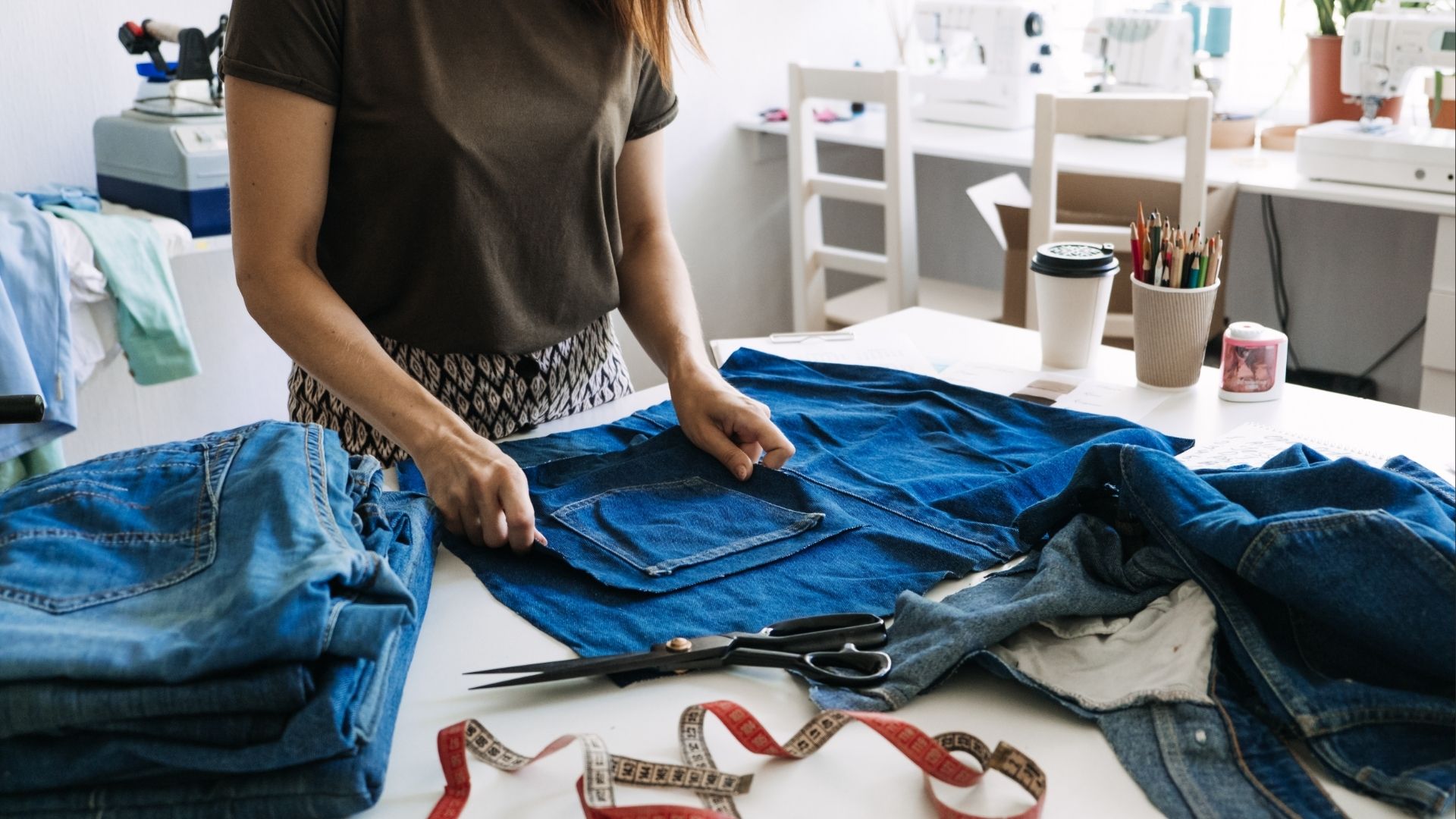A whopping 97 million tons of textile waste are produced annually by the fashion industry as of 2023. With the current rate of growth in this industry, it does not seem that this amount will decrease anytime soon.
One of the ways to help consumers constantly in contact with the industry is to upcycle the clothes that they already have. Upcycling is the process of creatively reusing old materials and finding more value in them than originally claimed. Because it involves repurposing and maximizing longevity, it addresses some of the environmental challenges associated with traditional garment production and promotes a more sustainable approach to fashion. On a more personal note, it fosters a sense of creativity that helps you rekindle your love for clothes you’ve fallen out of love with.
Now that you are thinking of upcycling, here are some beginner-friendly ideas to inspire you:
Using Tops

Starting with the easiest and most flexible to work with, tops are ideal for upcycling projects. Whether sleeved or sleeveless, oversized or button-down, long-sleeved or short-sleeved, there are creative opportunities at every seam, stitch, and buttonhole.
You can begin with something basic, like cutting an oversized shirt into a slim or flowy off-the-shoulder top, or perhaps reworking a bell-sleeved blouse into a cute cami. If you’re up for a bit more of a challenge but still want something manageable, try pleating and sewing a button-down shirt into a top that cinches at the waist. Upcycling tops becomes even more fun with unique or elaborate designs, so don’t stop yourself from playing around with clothes that are just a bit outdated. Or, if you find an old top to be too plain, you can always draw or paint on it. You can even combine two tops or repurpose an oversized button-down shirt to create a whole new dress, taking your upcycling skills to the next level!
Using Pants

Pants, especially those made from strong fabrics like denim, cargo, and corduroy, hold up well when you cut, sew, or transform them. This makes them durable for all sorts of upcycling projects, even ones that are not specifically meant to be worn. Using pants for upcycling also presents an added challenge because, besides their varying shapes, pants come with pockets, zippers, and a waistband. But this challenge is not necessarily a deterrent. If anything, it makes the art of upcycling more interesting!
If you have a perfect pair of skinny jeans that you’ve abandoned just because skinny jeans lost their popularity in 2024, don’t lose hope! You can open its inside and outside seams, cut triangles out of a different pair, and sew them all together for a pair of baggy jeans! Or, if pants aren’t really your thing, you can cut the length to match your legs to create a base for a skirt, use the excess fabric to make pleats, and sew them onto the bottom hem of the base to make a pleated skirt. In any case, you can play with its design too by maybe adding a few ripped details, embroidery, or drawings.
Using Skirts

Skirts have a more straightforward structure compared to tops and pants, but it is precisely this simplicity that can make them challenging to be creative with. However, once you have an idea, you’re likely to feel freer. This is because skirts typically use more fabric. Meaning, you have a larger canvas to work with, and you can repurpose them however you need without making complicated alterations.
With skirts, you can cut a lot of fabric to create a flowy blouse or trim a bit for a stylish dress. If you want to keep it as a skirt but find the pattern lacking, you can make it more interesting by combining it with another fabric or a differently colored or patterned skirt. For example, you might add a contrasting waistband or use fabric from a different skirt to create a unique, patchwork design. You can also experiment with adding embellishments or altering the hemline to give it a fresh look. While skirts may appear simpler in structure, at least you gain more fabric to play with.
Using Dresses

Dresses combine the best features of tops and skirts, but sometimes they’re not as versatile for different occasions on their own. More often than not, dresses are only used once or at least every once in a while.
Upcycling them is a smart way to get more use out of this single, full-body garment. You can give your dress a makeover by turning it into different pieces like tops and skirts, or mixing and matching its parts to create totally new outfits. If you are not ready to commit to such big changes, combining it with another piece–even by simply wearing it underneath a shirt or a dress–makes significant differences to adapt the fabric and design to fit various styles and needs.
And that’s the final stitch to this list! Of course, this list only scratches the surface of the endless opportunities to be creative with old clothes. Remember, upcycling is a conscious practice in both sustainability and creativity. You don’t need newly-bought clothes to revamp your wardrobe. You can mix and match, sew and patch, and transform your old garments into distinct pieces that reflect your personal style. Embrace the upcycling process, and you might find your wardrobe more interesting and meaningful than ever before.







